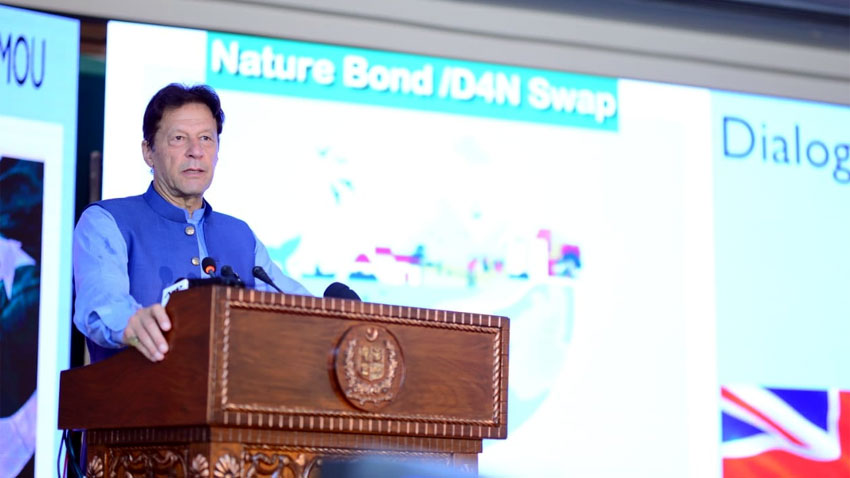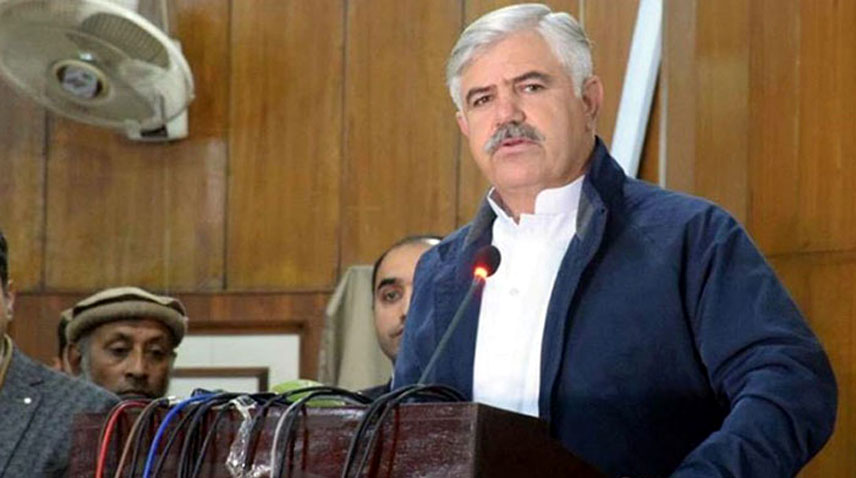Atta ur Rehman
Ministry of Planning, Development and Special Initiatives has launched National Population Situation Analysis (PSA) in collaboration with the United Nations Population Fund (UNFPA) in Islamabad on Wednesday.
Addressing the ceremony, President Dr. Arif Alvi said that Pakistan has adopted a multi-pronged approach to check population growth and address other issues like mother child health, malnutrition and stunting growth. The multi-pronged strategy included women empowerment through financial inclusion besides creating awareness about the importance of gap in birth through various means of communication and taking on board various segments of the society including Ulema, he added.
Speaking about the present government‘s commitment to address the issue of population growth he said Prime Minister Imran Khan soon after coming to power took up-the issue of malnutrition and stunting growth and subsequently various measures were taken to address the issue.
Dr Arif Alvi further stated that as compared to the previous government’s tenure of 2013-18 when this issue was not taken care of, the present government was making lot of efforts to address the issues of population growth, malnutrition, stunting growth and mother child health.
The President has said that as frequent pregnancies led to stunting growth of child besides affecting the health of mother there was a need to create awareness among masses about the importance of gap in birth and the use of contraceptives.
On the occasion, the Federal Minister for Planning Development & Special Initiatives Asad Umar said that the population control in Pakistan should have gained momentum much earlier due to which Pakistan became fifth most populous country in the region having highest population growth rate. He said that one of the key areas of PTI Manifesto is to tackle the population growth challenge.
Asad Umar further stated that the government is committed to deploy efforts to reduce the population growth rate for the health of mothers, children and families and the prosperity of Pakistan by reducing the impending burden on its resources. He said that the PTI manifesto seeks to ensure the adequate availability of contraception to all married women of reproductive age (MWRA) through the population welfare and healthcare network of Basic Health Units, Lady Health Workers and Community Midwives.
The Planning Minister said that they are committed to revitalize national family planning programmes, including providing air-time on national television to promote behavior change and increase uptake and continuation of contraception. He emphases that there should be inter-provincial harmony on the subject and provincial goals and targets must be aligned to national goals so that we adhere to our commitments made for the United Nations SDGs.
Asad Umar thanked the Honorable President of Pakistan for gracing the occasion with his involvement being the Chief Guest.
In his remarks, the Special Assistant to Prime Minister on Health, Dr. Faisal Sultan has said that Pakistan is the fifth most populous country in the world. A comprehensive analysis of the population situation was required, in order to provide the basis for an integrated appraisal of Population and Reproductive Health (RH) dynamics, their linkages, and impacts on poverty, inequality and development. He said that new projects related to mother & Child Health is under preparation for next PSDP.
While addressing the ceremony, the Deputy Chairman, Mohammad Jehanzeb Khan has aid that the Government of Pakistan under the leadership of the President of Pakistan are fully committed to ensuring a balance population growth. There is a high demand for family planning in the country, lowering maternal and child mortality is a priority that we are working towards.
Hehanzeb Khan further stated that Pakistan total fertility rate is 3.5%, where un-met need for family planning is 17.3% and the contraceptive prevalence rate is 34.2% and the inter-censal population growth rate is 2.4% which is twice the annual growth rate for Southern Asian Countries and about double the growth rates for countries such as Bangladesh, India, India and Iran.
The UNFPA Representative in Pakistan, Lina Mousa has said that in terms of its depth and scope the PSA covers all aspects related to socio-economic and human development. It is one of the most extensive PSA which will generate wealth of data providing strategic information for population and development planning and programming in Pakistan, especially at this critical time challenged by COVID19.
Lina Mousa further stated that integration of population dimensions into socioeconomic development plans is essential to gain full benefits of the demographic dividend. I wish to commend the Government of Pakistan for the high-level commitment to population and development, especially, under the visionary and dynamic leadership of H.E. the President. This commitment is very important to achieving national development agenda in the context of SDGs and ICPD 25.
The Canadian High Commissioner in Pakistan, Wendy Gilmor also shared her remarks at the event. She said that Canada is pleased to help celebrate today the launch of the Population Situation Analysis report as part of the 16 Days of Activism.
Wendy added that this important resource provides valuable evidence to all development partners in Pakistan to help ensure their efforts are evidence-based, timely, and relevant.
The second session of the event was a detailed technical discussion by the Panel of experts on the overview of PSA, demographic, social and economic aspects, data collection and challenges, Population dynamics, and Gender equality.
The event was attended by parliamentarians, policy-makers, government officials, international organizations, Ambassadors and civil society representatives, virtually and in-person. The event was divided in two parts. The inaugural session was moderated by Dr. Shabnum Sarfraz, Member Social Sector & Devolution from Ministry of Planning. Renowned national and International Demographers and Public Health Experts who contributed to the Pakistan PSA, were invited to shed light on their contributions.
About PSA:
The National Population Situation Analysis (PSA) is expected to inform evidence-based programming and focusing its analytical basis on population and its inter-linkages with development processes particularly in the current COVID-19 Pandemic situation. The PSA exercise is expected draw on the range of data available as well as provides an analysis of data gaps to be filled. International and national consultants will be involved to undertake a complex analysis of existing data and information using the PSA methodology, which are expected to prepare an inception report, including proposed structure, indicators and areas of interest to be analyzed. The inception, interim and final PSA reports will be validated through a consultative process with national counterparts and stakeholders and the final version of the report will be endorsed by the respective government institution.




